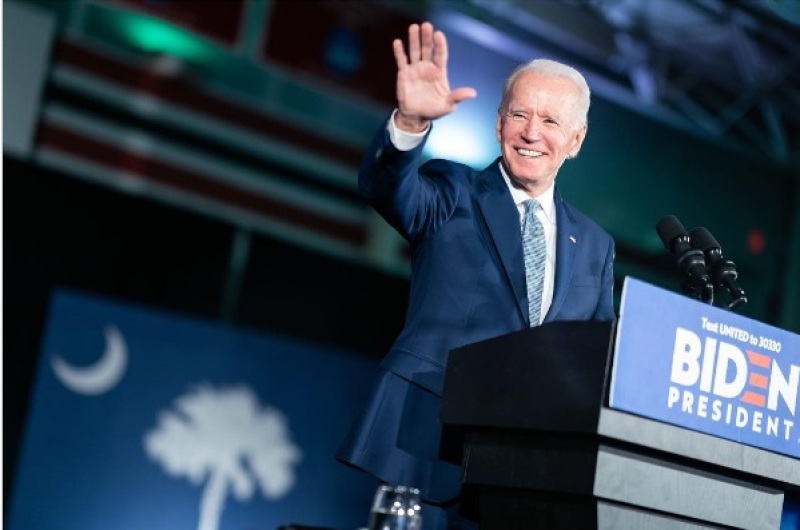
President Joe Biden was in New York City on Tuesday to address the United Nations General Assembly, the Democratic leader's first major address since he took office in January.
His address came at the heels of the mishandled withdrawal of U.S. troops from Afghanistan, the continued Mexican border crisis, a deteriorating relationship with France, and the COVID pandemic. It was on this world stage where the 78 year old took the opportunity to underscore America's strong leadership and commitment to diplomacy.
"As the United States seeks to rally the world to action, we will lead not just with the example of our power but God willing with the power of our example," President Biden said.
The Democratic leader said that the U.S. will "continue to defend ourselves, our Allies, and our interests against attack" on the condition that "the mission must be clear and achievable, undertaken with the informed consent of the American people and, whenever possible, in partnership with our Allies."
President Biden declared that "U.S. military power must be our tool of last resort, not our first, and it should not be used as an answer to every problem we see around the world."
According to CBN News, the president's underscoring of the U.S.' ties with its allies was in the hopes of repairing strained relations with them, following the issues sparked by the Afghanistan withdrawal, a U.S. drone strike that killed civilians instead of its intended target, and the crisis at the southern border.
President Biden said that while major world powers have a responsibility to manage relationships to that they don't "turn from responsible competition to conflict," he stressed that he has no intentions of going into a "Cold War" with the likes of China. Instead, he said that the U.S. is "ready to work with any nation that steps up and pursues peaceful resolution to shared challenges." This is the kind of weak leadership that would embolden China, Iran, and other adversaries in Asia and the Middle East.
Critics say that President Biden's failure to include France in its talks with Australia over nuclear-powered submarines and other defense matters has left France feeling betrayed. U.N. Secretary-General Antonio Guterres warned that the world is "moving in the wrong direction" because it is "more threatened" and "more divided" than ever.
In August, an op-ed published in The Hill highlighted the U.S.' "need for strong leadership," which is "never more acutely felt than when it is missing." It accused the Biden administration of being "incapable of making basic prudential decisions." But criticism was not limited to President Biden. The State Department has gotten flack for its mishandling of the Afghanistan withdrawal as well, showing just how weak leadership was at the top.
The State Department was described as "out of touch with reality" and "clueless" as to who exactly the Taliban was and what exactly these "uncivilized, violent, religious fanatics" are truly capable of.
At the heart of the Afghanistan failure is President Biden's distaste for what he claims are "an inherited problem" from several presidents past, one of whom he served as Vice President twice. He placed blame on presidents past for keeping up in what he liked to call the "forever war."
But as President Biden reminded the U.N. General Assembly, "The world today is not the world of 2001, though, and the United States is not the same country we were when we were attacked on 9/11, 20 years ago."































